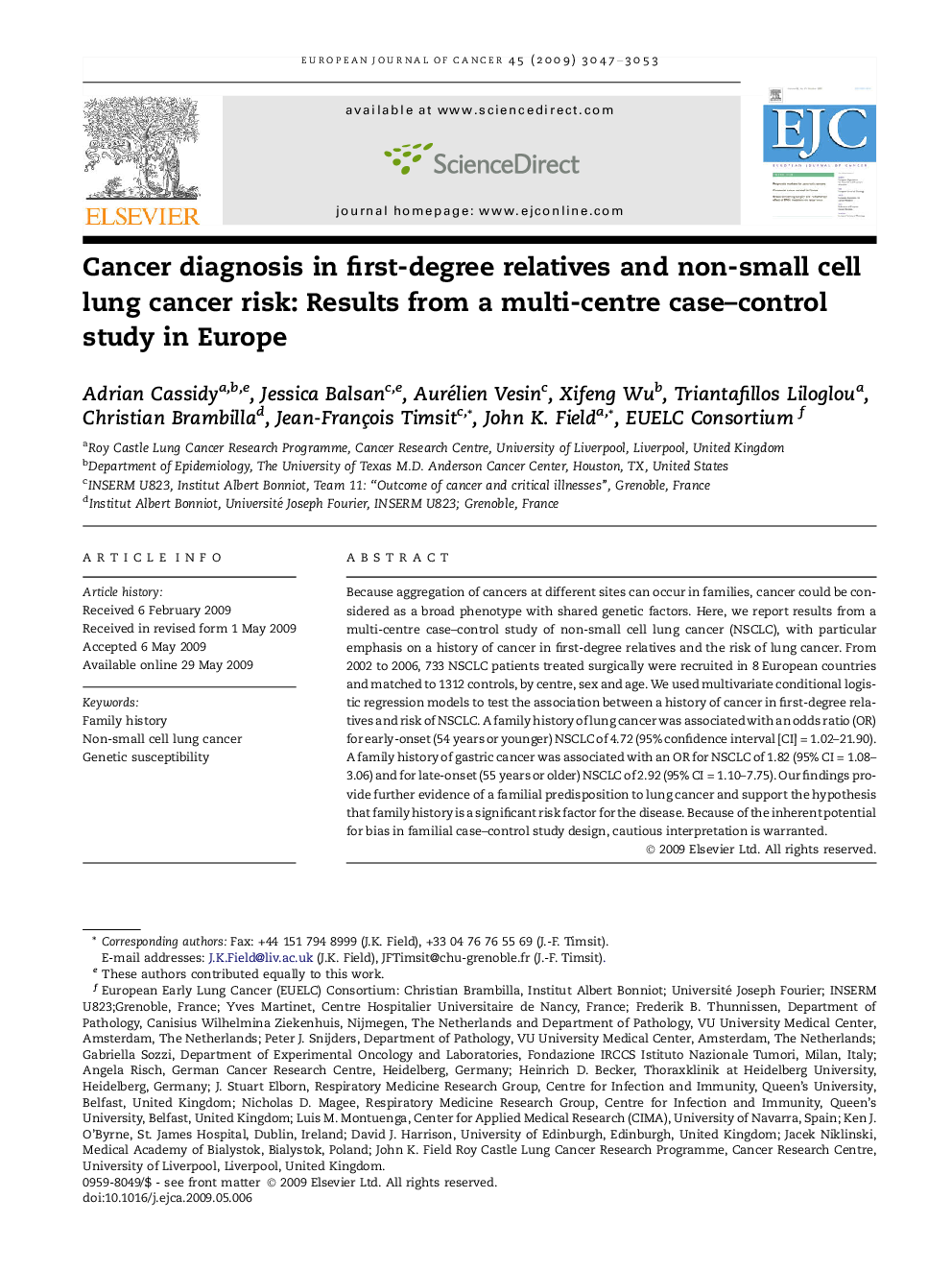| Article ID | Journal | Published Year | Pages | File Type |
|---|---|---|---|---|
| 2125204 | European Journal of Cancer | 2009 | 7 Pages |
Because aggregation of cancers at different sites can occur in families, cancer could be considered as a broad phenotype with shared genetic factors. Here, we report results from a multi-centre case–control study of non-small cell lung cancer (NSCLC), with particular emphasis on a history of cancer in first-degree relatives and the risk of lung cancer. From 2002 to 2006, 733 NSCLC patients treated surgically were recruited in 8 European countries and matched to 1312 controls, by centre, sex and age. We used multivariate conditional logistic regression models to test the association between a history of cancer in first-degree relatives and risk of NSCLC. A family history of lung cancer was associated with an odds ratio (OR) for early-onset (54 years or younger) NSCLC of 4.72 (95% confidence interval [CI] = 1.02–21.90). A family history of gastric cancer was associated with an OR for NSCLC of 1.82 (95% CI = 1.08–3.06) and for late-onset (55 years or older) NSCLC of 2.92 (95% CI = 1.10–7.75). Our findings provide further evidence of a familial predisposition to lung cancer and support the hypothesis that family history is a significant risk factor for the disease. Because of the inherent potential for bias in familial case–control study design, cautious interpretation is warranted.
